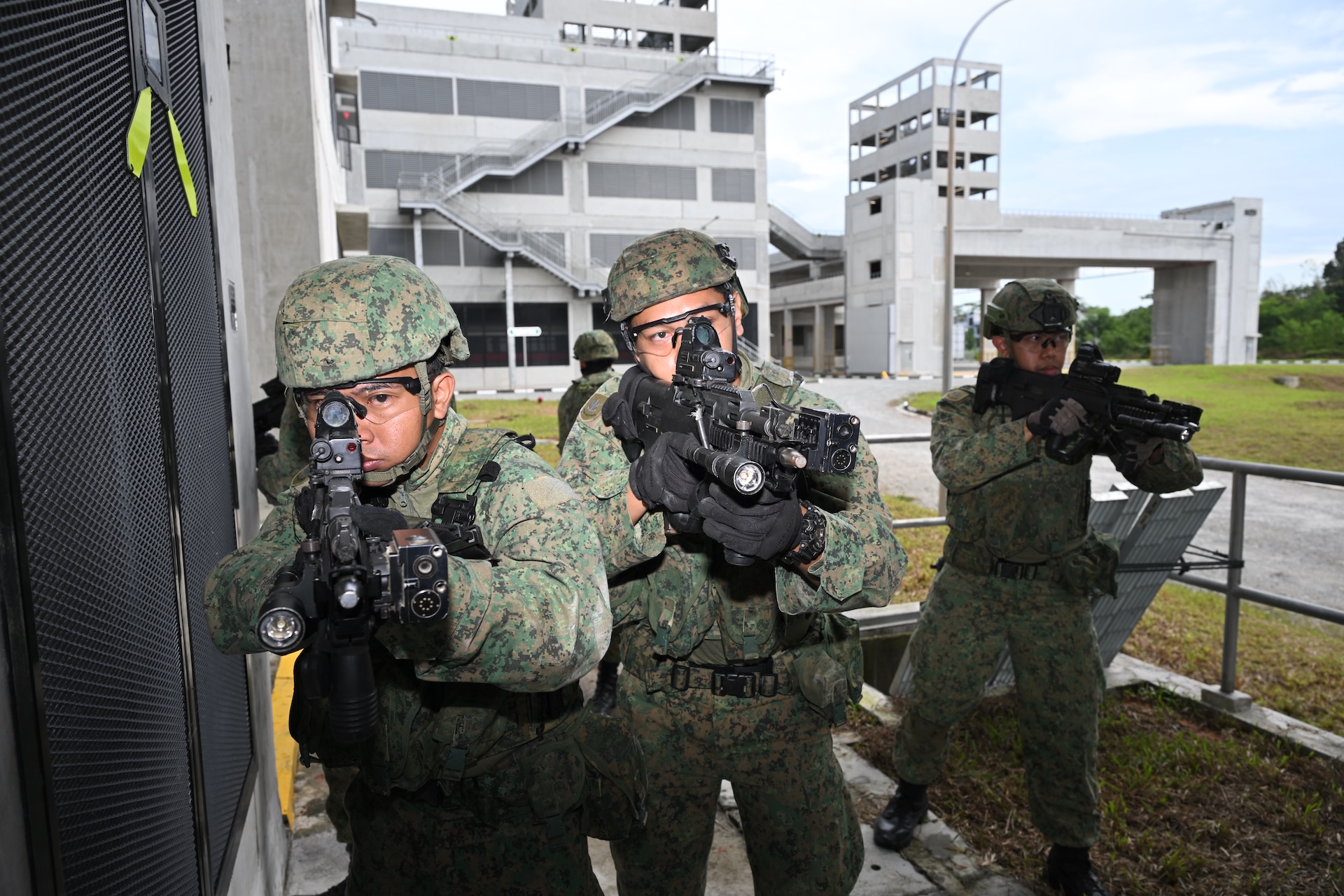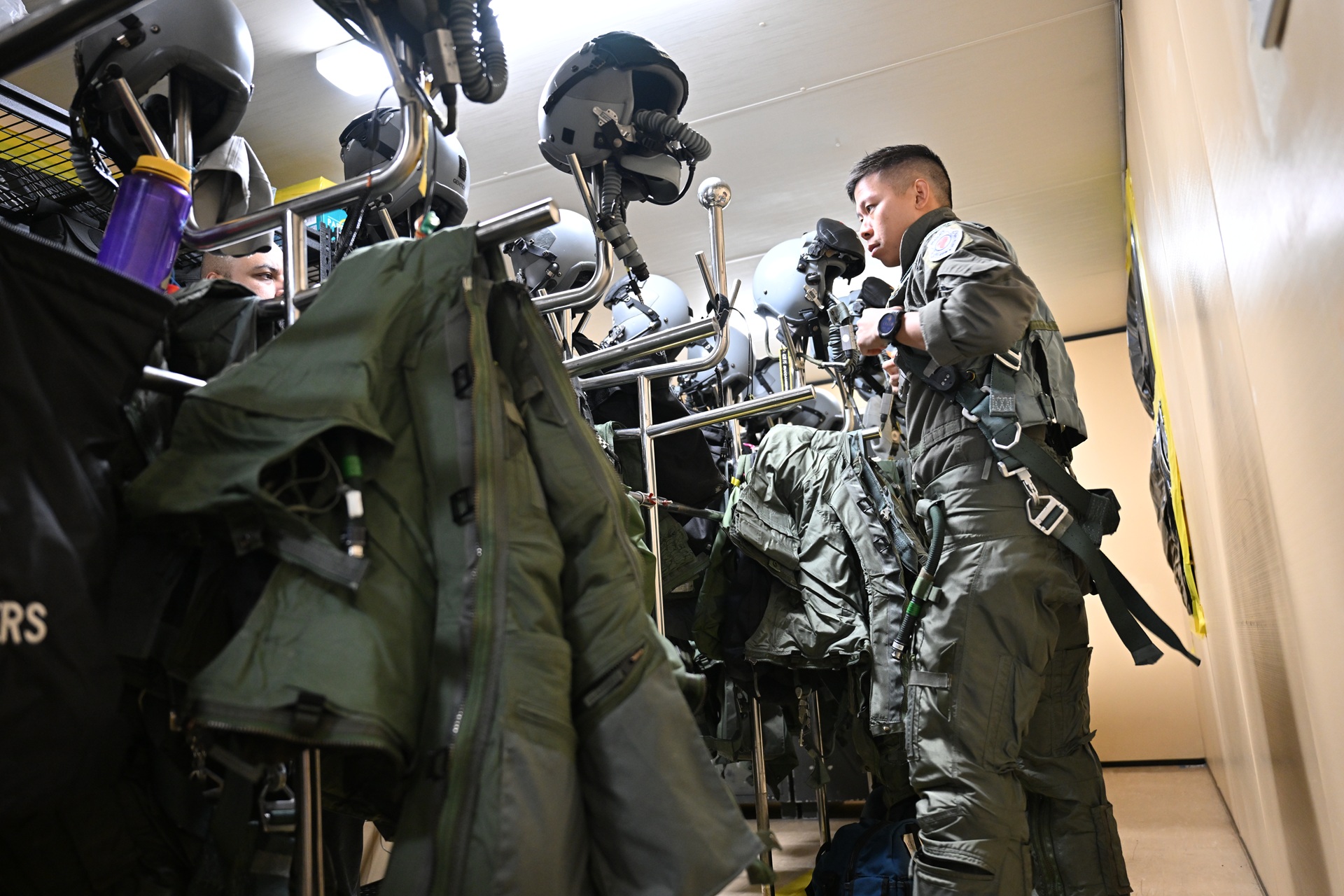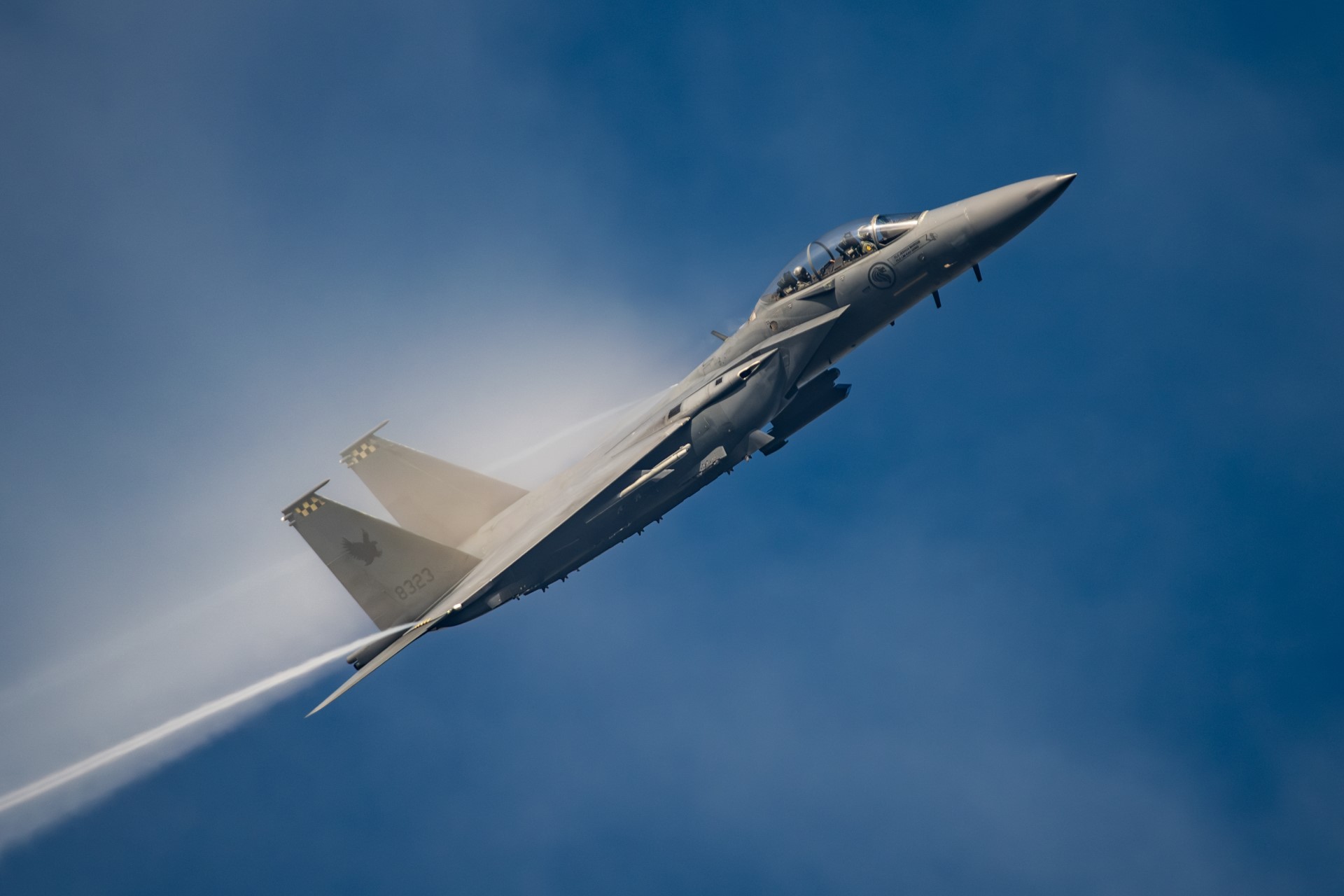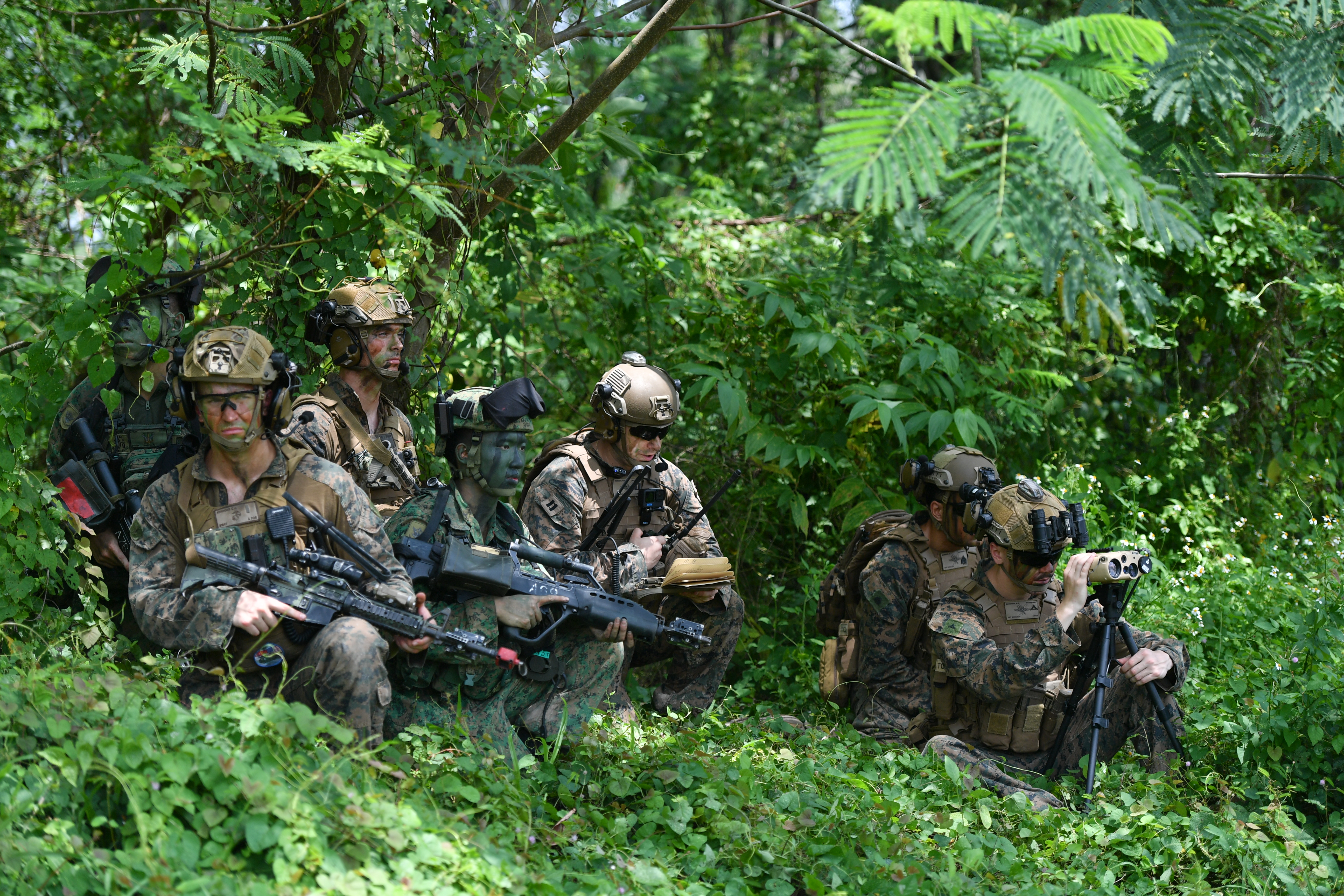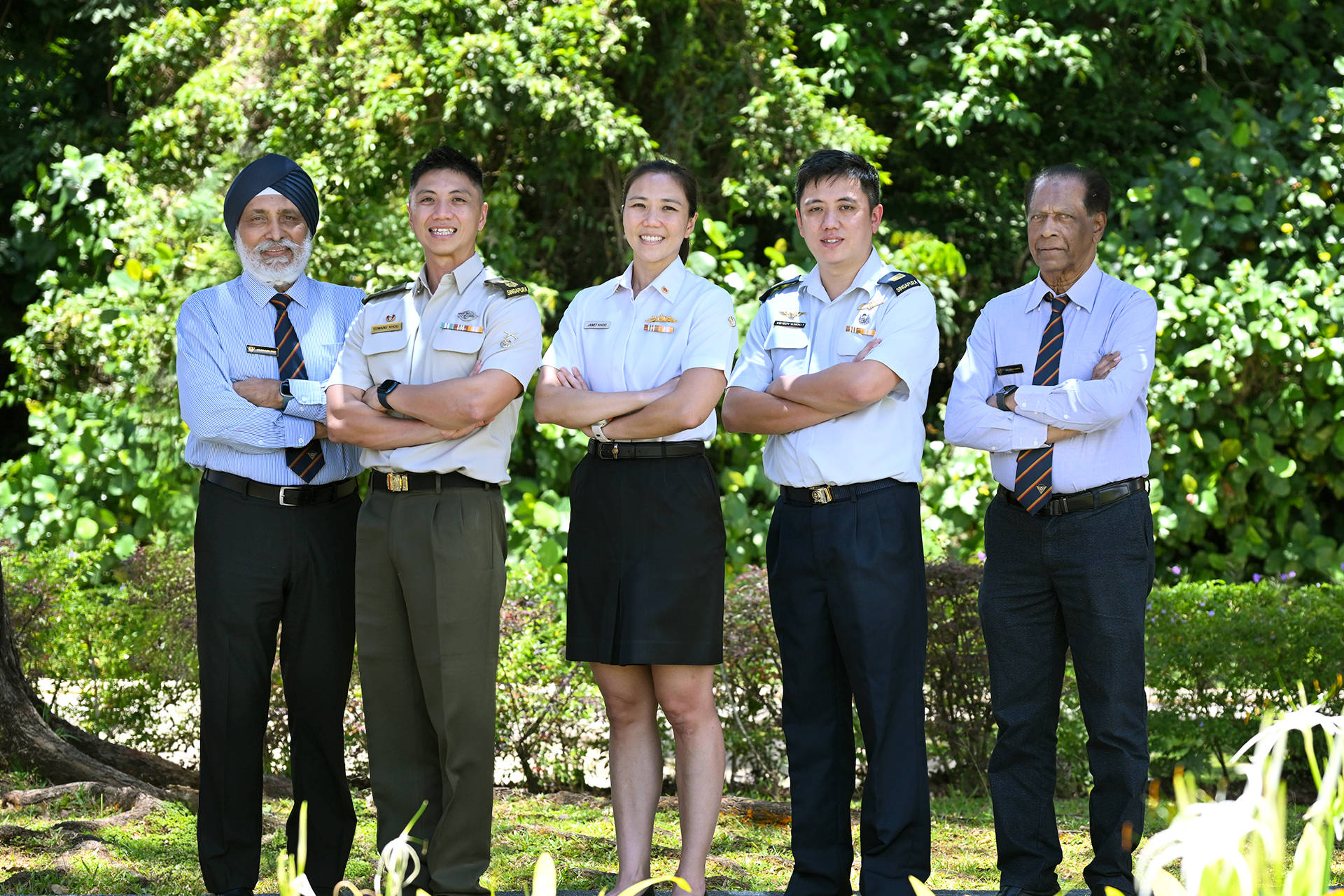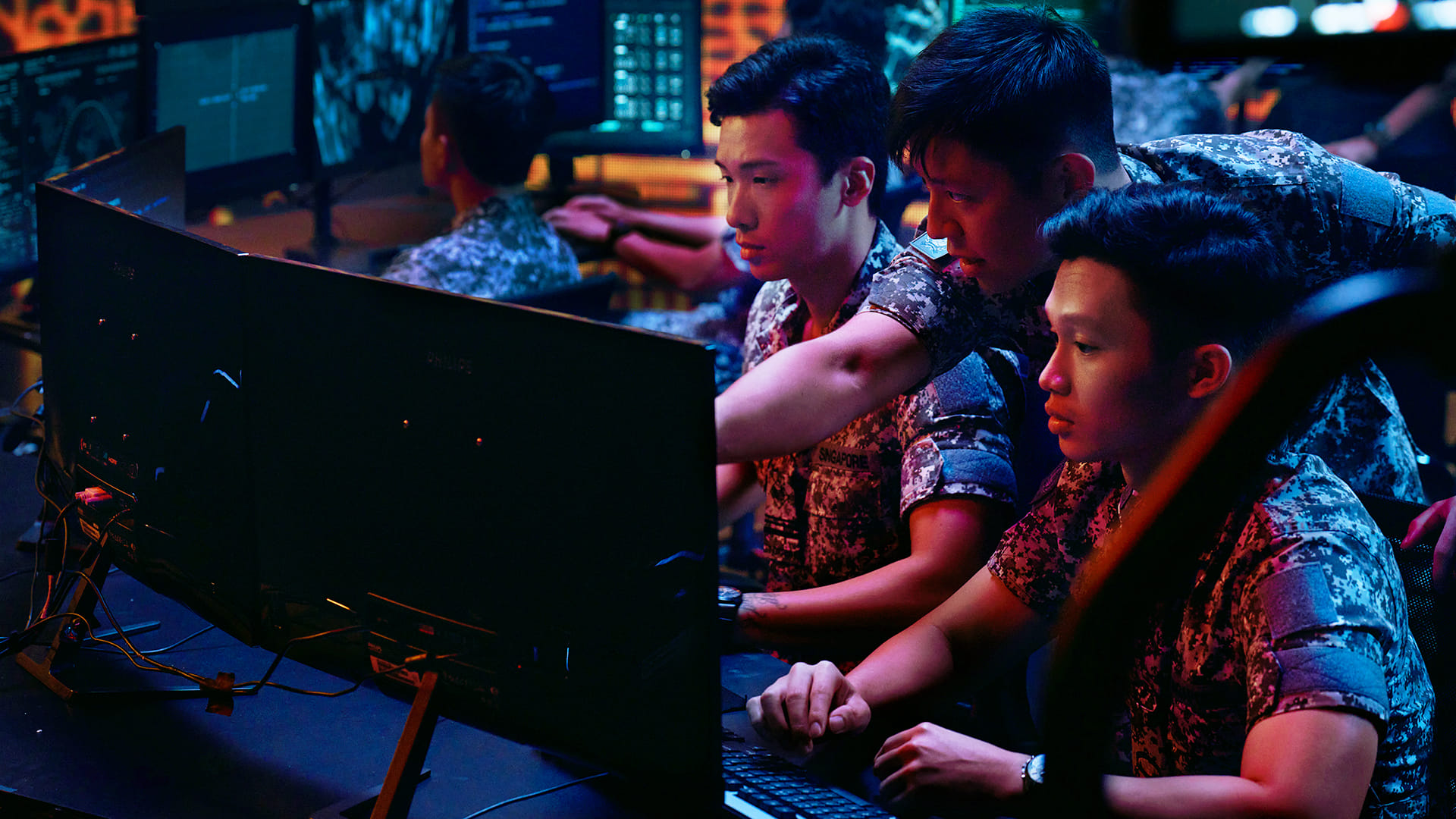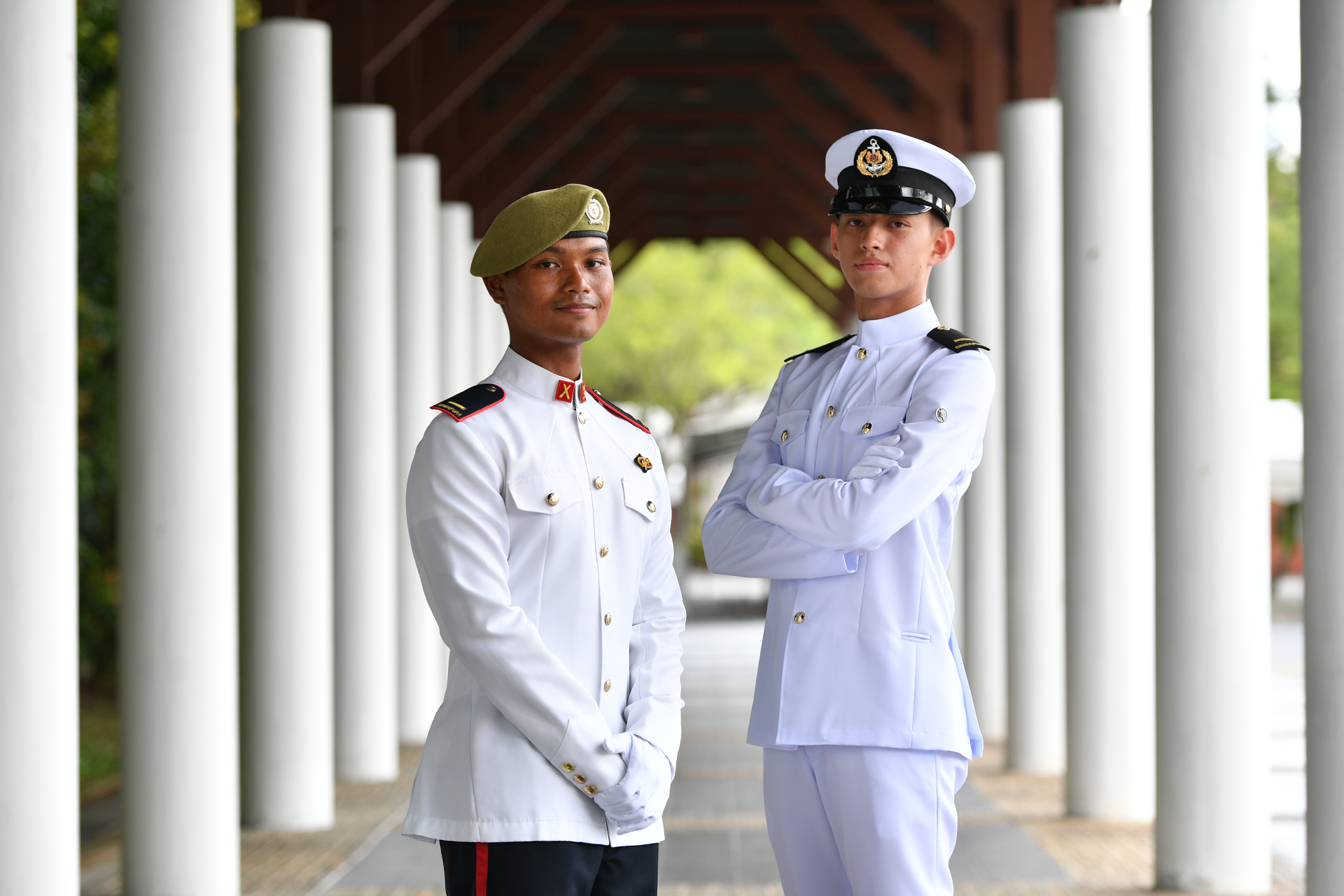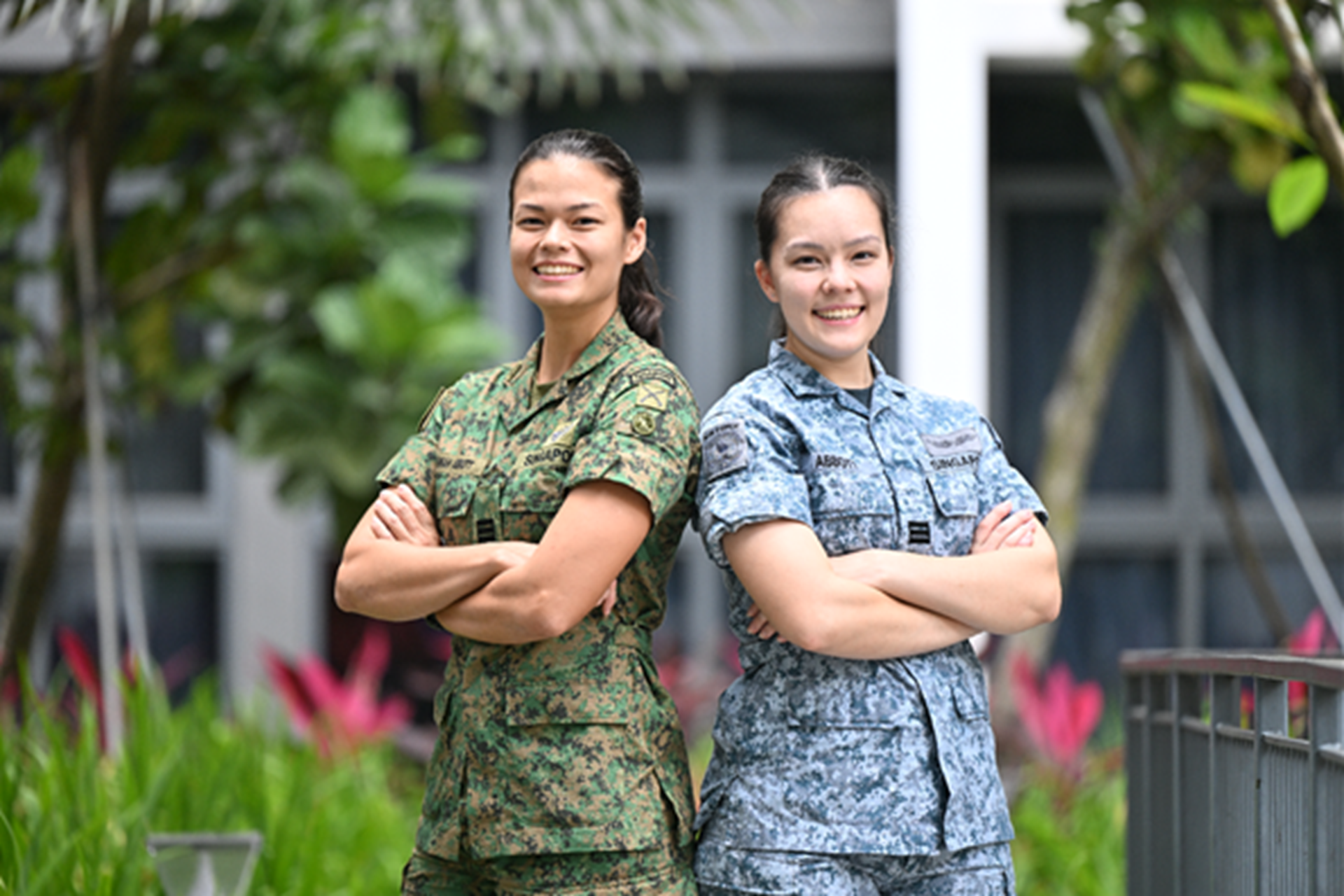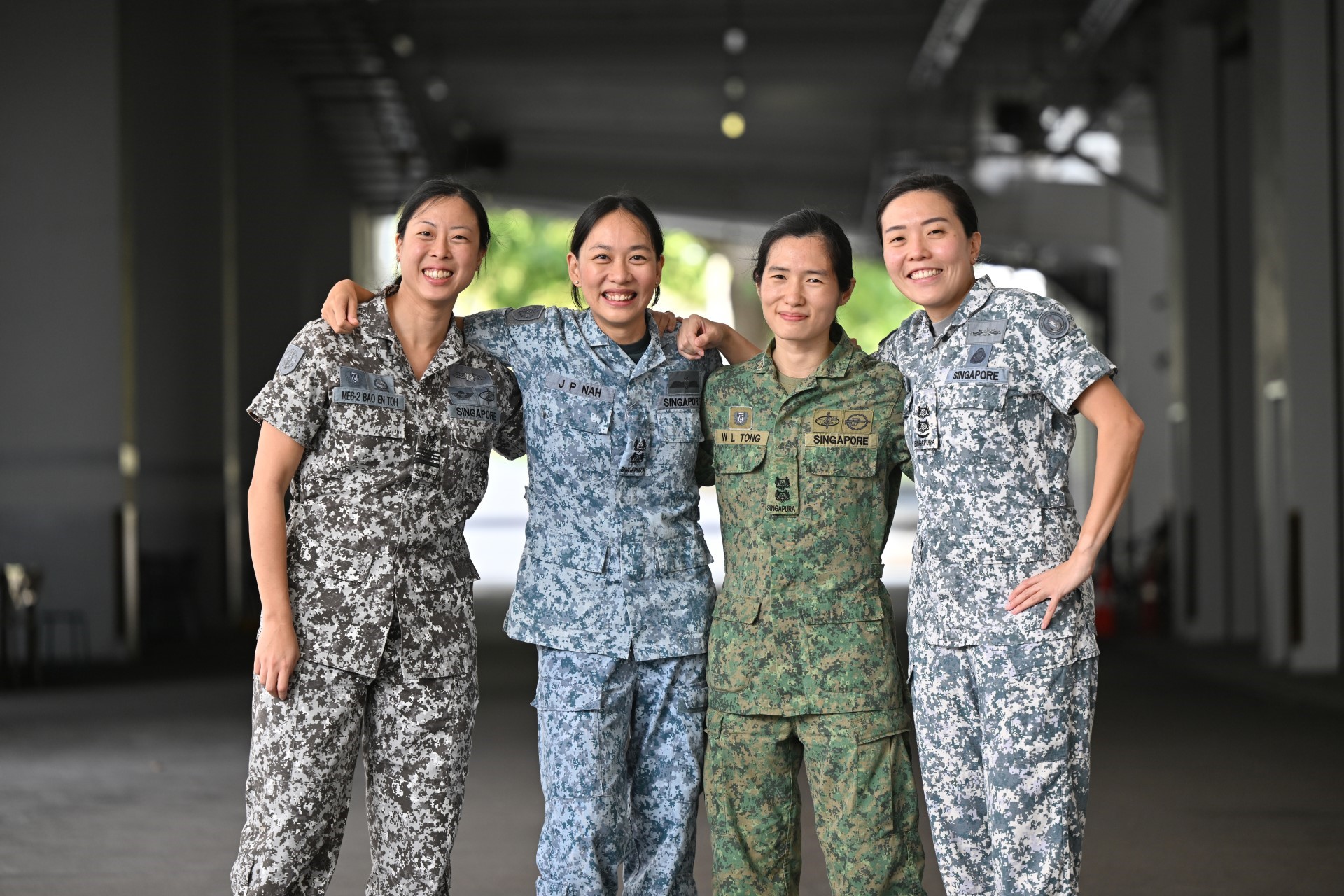NEW CLOTH BADGE FOR SAF PARACOUNSELLORS
PHOTO // Chua Soon Lye
A new cloth badge for paracounsellors was unveiled at a paracounsellors appreciation event on 15 Jan at the Chevrons.
Paracounsellors are volunteers who are trained to identify and manage personal, emotional and psychological issues faced by servicemen. There are about 1,400 paracounsellors in the Ministry of Defence (MINDEF) and the Singapore Armed Forces (SAF). Previously, paracounsellors were issued only the metal version of the badge.
Military Expert (ME) 4 Tan Wee Seng, a member of the Paracounsellors Advisory Committee and the SAF Dress Committee, and the Command Chief at the Unmanned Aerial Vehicle Command, explained the rationale for introducing a cloth version of the badge: "We noticed that many paracounsellors who are combatants don't wear the metal badge on their No. 4 uniforms, because the badge can pose safety issues. For example, the metal badge on the attire of an air force combatant can be an FOD (Foreign Object Debris).
"Paracounsellors can now don the cloth badge on their No. 4 uniforms, and this will allow soldiers on the ground (who need help) to better identify them."
At the event, guest of honour Senior Parliamentary Secretary for Defence and National Development, Dr Mohamad Maliki Bin Osman, lauded the paracounsellors for their spirit of volunteerism.
"'Caring for soldiers' is a core value of the SAF. As paracounsellors, you epitomise this value...Your willingness to be part of the SAF paracounselling force has ensured that help is readily available for every SAF personnel, and that there will always be someone who is ready to provide a listening ear to those who need it."
He added: "I believe that through your dedication and commitment, you have helped to make the SAF a better and more resilient defence force."
Dr Maliki also presented 132 paracounsellors with certificates of appreciation, Commendable Service Awards and Distinguished Service Awards in recognition of their commendable contributions.
Third Warrant Officer (3WO) Serene Chua, a Distinguished Service Award recipient, admits that being a paracounsellor can be stressful. She cited a challenging experience when she provided counselling support for an 2010 National Day Parade (NDP) participant who had an asthma attack.
On the way to the hospital in the ambulance, the patient was gasping and her heart rate was abnormally fast.
The Communications Specialist recounted: "I'm not medically equipped, so I used whatever knowledge I had to calm her down and stabilise her heart rate. When she made it to the hospital for treatment, I felt very relieved."
Another Distinguished Service Award recipient, 1WO Sim Chee Kian, felt the same about this role. In his 10 years as a paracounsellor, he has had to counsel many full-time national servicemen who had trouble adjusting to military life.
The Wing Second-in-command at the Engineer Training Institute doesn't consider it "extra work" to be a paracounsellor, as it is in his nature to want to help others. He said: "It's satisfying to see my clients work out their own problems and get back on their feet, or to at least be able to direct them to the correct channels to seek help."
